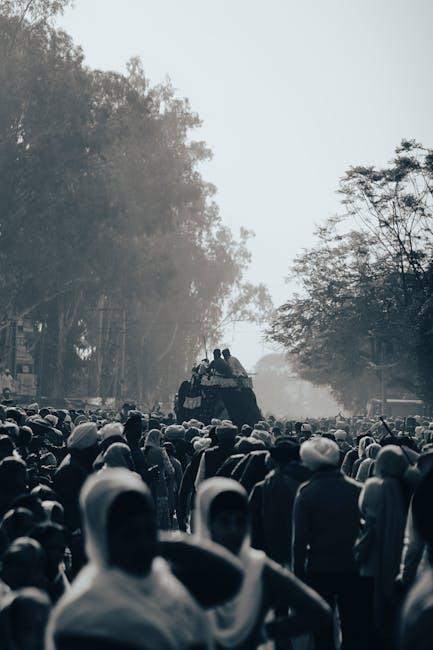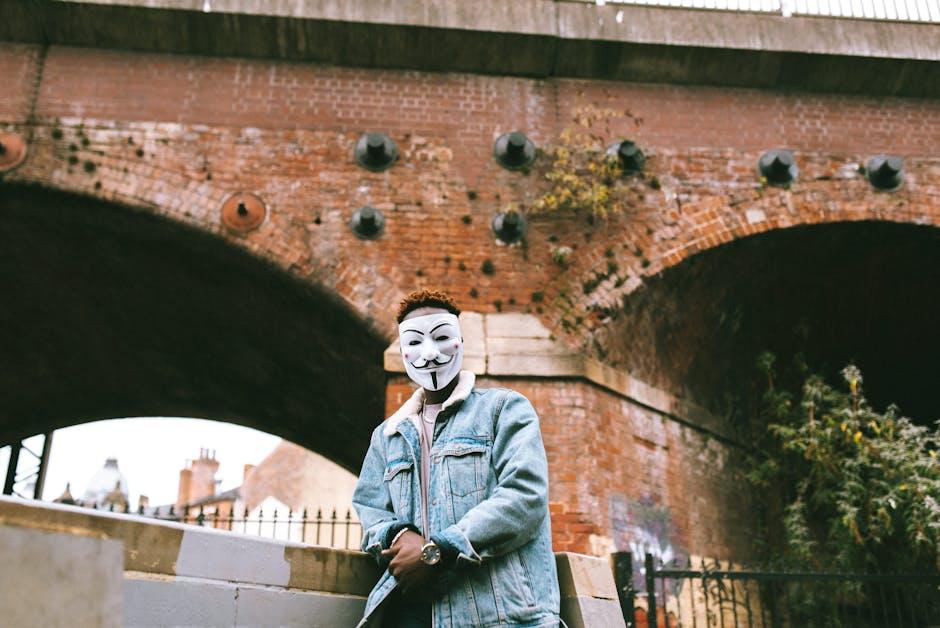In the summer of 1985, the streets of Brixton, a vibrant and diverse neighborhood in South London, became the backdrop for a series of events that shook the community and reverberated across the nation. The Brixton Riots of 1985, fueled by long-standing tensions and socio-economic disparities, sparked a wave of unrest that highlighted deep-rooted issues of inequality and injustice. Let’s delve into the history and impact of the Brixton Riots, exploring the factors that led to this pivotal moment in British history.
Table of Contents
- Understanding the Context of the Brixton Riots 1985
- Impact of Social Injustice and Economic Disparities
- Lessons Learned and Unaddressed Issues
- Moving Forward: Strategies for Prevention and Community Healing
- Empowering Voices and Encouraging Dialogue
- Q&A
- Final Thoughts


Understanding the Context of the Brixton Riots 1985
The events that unfolded during the Brixton Riots of 1985 were a reflection of deep-rooted societal issues and tensions that had been simmering for years. Sparked by a combination of factors such as police brutality, racial discrimination, and economic deprivation, the riots served as a stark reminder of the inequalities and injustices faced by the local community.During the height of the unrest, Brixton became a battleground where anger and frustration boiled over, leading to widespread destruction and chaos. The riots highlighted the urgent need for systemic change and a reevaluation of policies affecting marginalized communities. As the smoke cleared, the scars left on the streets of Brixton served as a potent symbol of the struggles faced by those fighting for justice and equality in an unforgiving world.
| Key Takeaways: | Police Brutality |
|---|---|
| Racial Discrimination | |
| Economic Deprivation |


Impact of Social Injustice and Economic Disparities
The Brixton Riots of 1985 serve as a stark reminder of the consequences of unchecked social injustice and economic disparities. The streets of Brixton became a battleground, echoing the frustration and anger of a community marginalized by systemic inequalities. The spark that ignited the unrest was fueled by years of neglect, discrimination, and a sense of powerlessness among the residents.Amidst the chaos and destruction, the Brixton Riots brought to light the urgent need for addressing deep-rooted issues such as police brutality, lack of economic opportunities, and racial discrimination. The aftermath of the riots left scars on the community, but it also sparked discussions and actions towards creating a more equitable society. The events of 1985 in Brixton serve as a pivotal moment in history, underscoring the importance of social solidarity, justice, and empowerment in building a more inclusive and fair society for all.

Lessons Learned and Unaddressed Issues
In reflecting on the tumultuous events of the Brixton riots of 1985, a profound realization surfaces – the lessons learned and the unaddressed issues that linger. The echoes of that period continue to reverberate through time, calling for a deeper understanding of societal fractures and systemic injustices.Lessons Learned:
- Unity amidst adversity can spark meaningful change.
- The power of community resilience in the face of hardships.
- The importance of listening to marginalized voices to prevent future unrest.
- Collaboration between authorities and citizens for sustainable solutions.
Unaddressed Issues:
- Lingering economic disparities fueling social tensions.
- Inadequate support systems for marginalized communities.
- Deep-rooted discrimination that demands proactive dismantling.
- Long-standing lack of accountability in governance and policing practices.
| Unaddressed Issues | Strategies for Resolution |
|---|---|
| Economic Disparities | Investing in community development programs. |
| Marginalized Communities | Implementing inclusive policies and resources. |
| Discrimination | Enforcing anti-discrimination laws and promoting diversity. |
| Lack of Accountability | Establishing transparent oversight mechanisms. |
Moreover, empowering grassroots initiatives can play a significant role in rebuilding trust and unity. Supporting community-led projects that focus on education, mental health support, and youth engagement can help address underlying issues and promote long-term positive change. By investing in the strength and resilience of local communities, we can collectively move towards a brighter and more harmonious future.
| Key Points: |
|---|
| Open dialogues for understanding |
| Empower grassroots initiatives |
| Invest in community-led projects |


Empowering Voices and Encouraging Dialogue
During the Brixton Riots of 1985, a tumultuous period in London’s history, voices long silenced rose up in a chorus of frustration and demands for change. In the heart of Brixton, a community grappling with social inequalities found itself at a crossroads, where pent-up anger met a call for justice.
Amidst the chaos, dialogues began to emerge—conversations that transcended the violence and sought to address the root causes of the unrest. Individuals young and old, from diverse backgrounds, united in a shared goal: to be heard, to be seen, and to pave the way for a more equitable future. These conversations, though at times difficult, were essential in fostering understanding and paving the path towards reconciliation.
Q&A
**Q: What Were the Brixton Riots of 1985?**A: The Brixton Riots of 1985 were a series of protests and violent clashes that erupted in the Brixton area of London, primarily fueled by deep-seated social and economic issues.
Q: What Sparked the Brixton Riots?
A: The riots were sparked by a culmination of factors, including high unemployment rates, racial tensions, heavy-handed policing, and a sense of marginalization felt by the local community.
Q: How Did the Brixton Riots Unfold?
A: The unrest began after the police stopped and searched a young black man, leading to widespread anger and frustration among residents who felt unfairly targeted and mistreated by law enforcement.
Q: What Was the Impact of the Brixton Riots?
A: The riots resulted in significant property damage, injuries, and arrests, highlighting the deep-rooted issues of inequality, discrimination, and alienation that plagued Brixton and other marginalized communities in the UK.
Q: What Changes Followed the Brixton Riots?
A: The Brixton Riots served as a wake-up call for the government and society, prompting discussions on race relations, policing tactics, social policies, and the need for greater inclusion and understanding in addressing systemic issues.
Q: What Lessons Can Be Learned from the Brixton Riots?
A: The Brixton Riots of 1985 underscored the importance of listening to marginalized communities, addressing economic disparities, promoting social justice, and fostering dialogue to prevent similar conflicts in the future.
Final Thoughts
As we reflect on the events that unfolded during the Brixton Riots of 1985, it becomes evident that the echoes of that tumultuous time still resonate in our society today. The clashes, the struggles, and the subsequent efforts towards reconciliation serve as a somber reminder of the complexities inherent in our communities.While the scars left by the riots may have faded over time, the lessons learned remain etched in our collective memory. It is through understanding our past that we pave the way for a more harmonious future. Let us not forget the pain and the passion that fueled those dark days, but rather use them as beacons guiding us towards a brighter tomorrow.
As we move forward, may the echoes of history remind us of our resilience, our capacity for change, and our enduring commitment to building a more just and equitable society for all. Let us strive to learn from the past, to heal from its wounds, and to create a future where unity triumphs over division, and understanding prevails over discord.





0 Comments